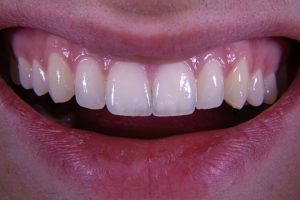Just as we trust doctors for the well-being of our general health, dentists are the doctors of our oral health and play an essential role in maintaining our smile. Extensive research has also shown that there is a direct correlation between an individual’s oral health and general health. Caring for our teeth is no longer just about preventing cavities and gum disease. It is also about prolonging the life of our natural teeth and avoiding dental issues that can affect our personal, professional, and social life.
There is no denying that our teeth require the very best in oral care, and there is no one better than a dental professional to guide us on the optimal ways to take care of our dental health. Here are some of the top practices followed by dental professionals to care for teeth and maintain their oral health:
Table of Contents
Regular Brushing:
While brushing your teeth one or two hours after every meal is a good idea, it may not be a feasible option for everyone at all times. Brushing your teeth at least twice a day – once before bedtime and once in the morning – is the top recommendation by most dentists. It is also essential to avoid brushing too aggressively. Contrary to popular belief, vigorous scrubbing of your teeth does not clean it better but instead leads to wearing away of the enamel and damage to gums. This, in turn, can lead to more dental issues like dental erosion and tooth sensitivity.
Flossing:
Most dental professionals recommend flossing at least once a day, preferably before bedtime, in addition to regular brushing to prevent cavities and keep teeth healthy. While tooth brushing can successfully remove plaque from the top surfaces of the teeth, dental floss is used to remove plaque and food particles from in between the teeth where the toothbrush cannot reach.
Use of Fluoride:
It has been proven over time that fluoride helps in the reduction and prevention of dental cavities. Fluoride is commonly found in toothpaste and mouthwashes, and even in the drinking water supply across many communities in the USA. Individuals who are prone to dental decay may also opt for a topical fluoride treatment, which is especially useful in children who are more susceptible to developing cavities.
Balanced Diet:
A diet rich in carbohydrates and sugary foods and drinks plays a significant role in causing tooth decay and dental infections. The bacteria in the mouth convert the sugar in the foods into acids, which can cause a dissolution of the tooth enamel and lead to dental decay. While an occasional indulgence is alright, it is crucial to thoroughly clean the teeth and mouth after the meal as remnants of sticky and starchy foods can linger in the mouth for long periods.
Avoid Smoking:
Smoking is not just harmful to your general health but also for your dental health. Research has shown that chronic smokers have a slower immune system and suffer from delayed healing of wounds. They are also more prone to developing gum disease compared to non-smokers. Moreover, smoking leads to discoloration of teeth and the oral tissues, including bad breath, which can be a major hindrance to an individual’s social life.
Regular Visits to the Dentist:
It should not come as a surprise that dentists also visit other dentists to maintain their oral and dental health. Even with regular oral care at home, tooth cavities and gum disease can creep up on you. Seeing your dentist every few months allows all forms of developing dental issues to be kept in check. Your dentist may also recommend deep cleaning every once in a while since plaque and tartar may accumulate in hard-to-reach areas even with regular brushing and flossing.
Most dental and oral health problems are completely avoidable. All it requires is adequate care and attention at home, coupled with regular visits to the dental office to ensure your teeth and gums remain healthy. Visit Brooklyn Blvd. Dental to know more about the best ways to care for your teeth and oral health.







